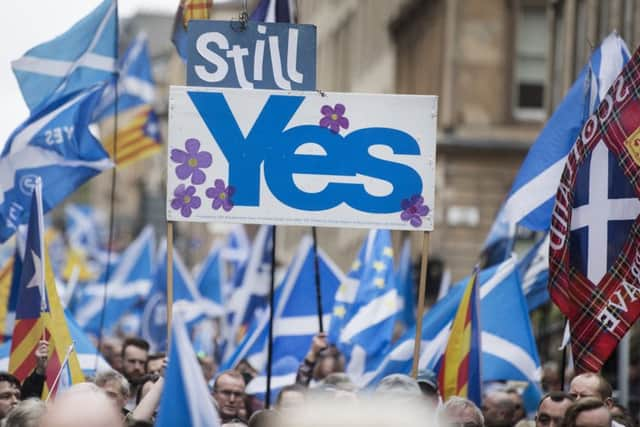Why requiring two referendums on independence could boost Yes vote – Dr Alan Renwick
The First Minister’s statement suggests that she has learnt important lessons from the painful experience of Brexit. She wants to avoid deep division and enable informed choice.
To pursue this, she made three concrete proposals: cross-party talks; a citizens’ assembly; and new rules for future referendums. Having run the first ever UK-wide citizens’ assembly, on Brexit, in 2017, I know the power of this approach – it’s a hugely important and valuable step.
Advertisement
Hide AdAdvertisement
Hide AdLet’s hope too that the new referendum rules address the major gaps in UK-wide legislation that allowed a torrent of manipulative campaigning to go unchecked in 2016.


Another key Brexit lesson is that sometimes one referendum is not enough.
Brexit and Scottish independence share the same structure: a referendum is held on the principle; only then do negotiations begin on putting that into practice.
Holding just one referendum in such cases denies voters the right of informed consent. While some voters will back independence or the union come what may, the decision of others depends on the terms of independence – yet they are forced to choose before these are known.
The best way around this is to plan from the start for two referendums: first on the principle; second on whether people still want to go ahead with change once the details are known.
That was proposed last year by the Independent Commission on Referendums and earlier this year by the Council of Europe.
There have traditionally been two objections to this approach. The first is that requiring two referendums would weaken Scotland’s negotiating hand: the UK Government would deliberately offer a bad deal, hoping voters would reject it.
But Brexit shows it is deluded to suppose that a deal of such massive importance could be signed off without thorough democratic scrutiny in some form at the end of the process.
Advertisement
Hide AdAdvertisement
Hide AdSecond, nationalists worry that it’s harder to win two referendums than one. But if voters know there will be a second ballot, they are much more likely to vote Yes at the first: many will take the chance to see what’s on offer.
And a Yes vote first time round could build momentum for the second. Exactly this process underpinned one of the deepest transformations of a democracy in the last half century, when New Zealand’s voters decided over two referendums in 1992/93 to switch their voting system from Westminster-style first-past-the-post to the much more consensual Scottish-style additional member system or AMS.
Two referendums are needed for the decision to be democratic. And a democratic decision is needed if Nicola Sturgeon’s hope of holding the country together is to be fulfilled.
Dr Alan Renwick is deputy director of the Constitution Unit at University College London
